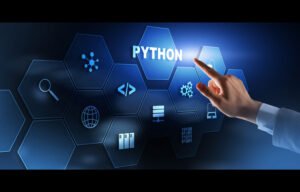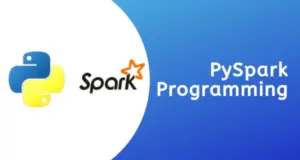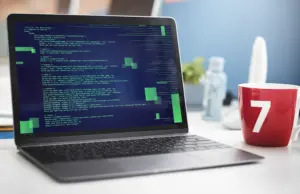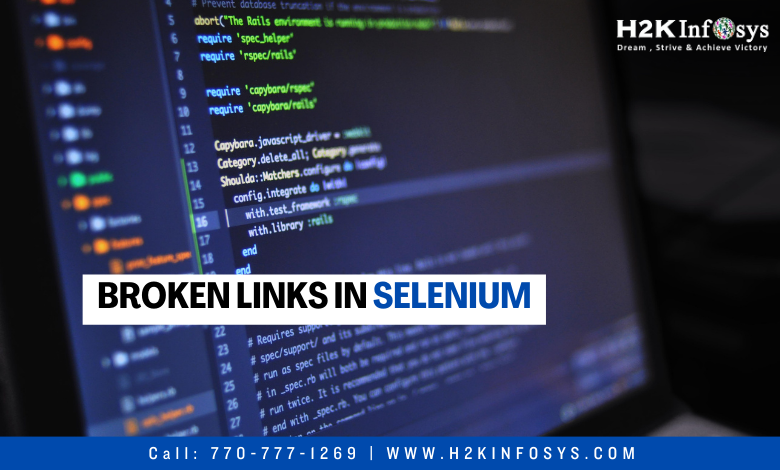Introduction
As the digital landscape continues to evolve, developers are increasingly faced with the decision of choosing the best programming language for their projects. Among the most widely used programming languages today are Python vs PHP. Each has its own set of strengths, capabilities, and areas of application. For web development, automation, and beyond, Python and PHP have earned their place as essential tools in every developer’s toolkit.
If you’re considering a career in Phyton certification , understanding the differences between these two languages and how they fit into your career path will help you make a more informed decision. In this blog, we will compare Python vs PHP in terms of their features, use cases, and overall suitability for your future projects in 2025.
While PHP was developed to build web applications, Python can be used for a more general purpose. In this tutorial, you will learn what differentiates Python vs PHP with respect to key factors such as performance, ease of learning, community, documentation, etc. Here’s what you can expect to learn by the end of this article.
What is Python
Python is an open-source, high-level, and dynamically-typed programming language that emphasizes readability and simplicity. It is widely regarded for its versatility and ease of use, making it one of the most popular languages in the programming world. It is designed to support multiple programming paradigms, including procedural, object-oriented, and functional programming.
One of Python’s defining features is its emphasis on clean, readable code. With simple syntax and structure, It allows developers to write code that is easy to understand, maintain, and modify. This is why It is often recommended as a first language for new programmers.

This is also highly extensible, with a rich ecosystem of libraries and frameworks for various applications. Whether you’re building web applications, conducting data analysis, implementing machine learning models, or automating Software testing, It has the tools to help you succeed. Its built-in data types, structures, and objects provide a strong foundation for complex projects. Additionally, its massive collection of libraries allows you to quickly build functional applications and scripts.
Overall, Python’s simplicity, versatility, and large supportive community make it a powerful choice for developers in various fields. Whether you’re just starting out or are an experienced developer, learning this opens up numerous possibilities in software development, data science, artificial intelligence, and more.
Why Choose Python
- Python is easy to learn and debug given its simple syntax
- Python is a lightweight language and can run on many platforms
- Python has built-in libraries that can be used right away during development
- Python provides a great interface to almost all key public database management systems. This means that you can easily manage your DB with the knowledge of Python
- With Python’s interactive shell, you can carry out unit testing easily before deployment.
- Python has a lot of frameworks such as Django and tk toolkit that supports GUI
Features of Python
Simple and Readable Syntax
One of Python’s most standout features is its straightforward and readable syntax. It was designed with the goal of being easy to read and write, which makes it an excellent choice for beginners in programming. The syntax is intuitive, often resembling plain English, which minimizes the learning curve. This simplicity allows developers to write clear and concise code that is easy to maintain.
Interpreted Language
It is an interpreted language, which means that code is executed line-by-line. Unlike compiled languages that require a separate compilation process, This code can be run directly using an interpreter, making the development cycle faster. This feature is beneficial for debugging, testing, and rapid prototyping.
Dynamically Typed
In Python, variable types do not need to be explicitly declared, and the interpreter determines the data type during runtime. This makes the language flexible and allows for rapid development. It eliminates the need to define the variable type beforehand, which is common in statically typed languages.
Cross-Platform Compatibility
It is a cross-platform language, which means that Python programs can run on multiple platforms without needing modification. It is supported on major operating systems like Windows, macOS, and Linux. This feature increases the portability of this applications and simplifies deployment across different environments.
Large Standard Library
Python comes with a vast standard library that provides tools and modules for performing a wide range of tasks, such as file I/O, regular expressions, networking, and database connectivity. This library saves time for developers, as they don’t need to write common functionality from scratch. Additionally, It has an extensive collection of third-party libraries and frameworks that further enhance its capabilities.
What is PHP
PHP, which stands for Hypertext Preprocessor, is a widely-used open-source server-side scripting language specifically designed for web development. It is used primarily to develop dynamic and interactive websites. It is a powerful tool that allows developers to create robust web applications and manage server-side tasks efficiently. Unlike client-side scripting languages, This code is executed on the server, generating dynamic content that is sent to the browser in the form of HTML, making it an essential part of modern web development.

It was originally created by Danish-Canadian programmer Rasmus Lerdorf in 1993 and has evolved over the years to become one of the most popular languages for web development. Its ease of use, vast community support, and compatibility with various databases and platforms have contributed to its widespread adoption.
One of the key features of it is its ability to work with databases, particularly MySQL. It allows developers to interact with databases to retrieve, manipulate, and store data, which is a critical aspect of most modern websites. Whether it’s storing user information, handling content management, or tracking user sessions, It plays a vital role in managing the backend functionality of web applications.
Features of PHP
Server-Side Scripting
It is a server-side scripting language, meaning that the code is executed on the server, and the result is sent to the client’s browser as plain HTML. This makes it possible to generate dynamic web pages based on user interaction or other conditions, allowing websites to display unique content each time they are loaded.
Open Source and Free
One of PHP’s most attractive features is that it is open-source and free to use. This eliminates licensing fees for developers, which is a significant cost-saving factor. Since it’s open-source, developers can contribute to its development, and it’s constantly updated and improved by a large community of contributors.
Cross-Platform Compatibility
It is platform-independent, meaning it can run on various operating systems such as Windows, Linux, macOS, and Unix. This makes a flexible choice for web development, as it can run on different servers and environments without requiring modifications to the code.
Database Integration
It has excellent support for databases, especially with MySQL, which is widely used in conjunction with it. It allows you to easily interact with databases to create, read, update, and delete records. It can also be used with other databases like PostgreSQL, Oracle, and SQLite. This is critical for creating dynamic websites with content that is pulled from and updated in a database.
Ease of Learning and Use
It is known for its simplicity and easy learning curve. Its syntax is similar to C and Java, which makes it easier for developers who are familiar with these languages to pick up PHP quickly. Furthermore, It’s straightforward structure allows even beginners to develop functional web applications without steep learning curves.
Why Choose PHP
PHP is a powerful and flexible programming language, especially when it comes to web development. Its popularity lies in its ability to create dynamic, interactive websites and web applications. PHP integrates seamlessly with HTML, making it an ideal choice for server-side scripting. Furthermore, PHP is open-source and supported by a vast community, offering a wealth of frameworks, libraries, and tools. This makes it easier for developers to build scalable, secure, and feature-rich applications. As one of the core languages behind popular platforms like WordPress, PHP’s adaptability, and widespread usage continue to make it a top choice for web developers.
What are the Key Difference between Python VS PHP

When it comes to web development and programming, the debate surrounding Python vs PHP continues to dominate discussions among developers. Both languages offer unique features and advantages, making it essential to understand their key differences to make an informed choice. Here’s a detailed comparison of Python vs PHP across various parameters.
1. Ease of Learning and Syntax
One of the primary distinctions between Python vs PHP lies in their syntax. Python is celebrated for its clean, readable, and beginner-friendly syntax, making it an excellent choice for those new to programming. On the other hand, PHP, while straightforward, often requires familiarity with specific web development practices, making it slightly less intuitive for beginners.
2. Performance and Speed
The performance of Python vs PHP depends on the type of application being developed. Python excels in executing complex, computationally heavy tasks efficiently, thanks to its robust libraries. PHP, optimized for web development, performs exceptionally well in server-side scripting, making it faster for web-based applications.
3. Web Development Capabilities
When comparing Python vs PHP for web development, PHP has been a traditional favorite for creating dynamic websites, with platforms like WordPress built on it. Python, however, has gained immense popularity with frameworks like Django and Flask, which offer flexibility, scalability, and simplicity for modern web applications.
4. Community Support and Libraries
Both Python vs PHP have extensive community support and a rich ecosystem of libraries. Python is widely used beyond web development, in fields like data science, artificial intelligence, and machine learning, making its library repository highly versatile. PHP’s libraries are more focused on web development, catering to CMS and eCommerce solutions.
5. Security Features
Security is a crucial consideration in the Python vs PHP debate. Python is often regarded as more secure due to its emphasis on code readability and fewer vulnerabilities in its frameworks. PHP has historically faced security challenges, but modern frameworks like Laravel have significantly improved its security standards.
6. Use Cases and Applications
When deciding between Python vs PHP, consider the use case. Python is ideal for projects involving data analysis, artificial intelligence, or scientific computing. PHP, meanwhile, remains a strong contender for building content-driven websites, eCommerce platforms, and CMS-based applications.
7. Job Market and Opportunities
The demand for both Python vs PHP is significant, but Python currently leads in job opportunities, especially in tech domains like AI, machine learning, and data science. PHP still holds a strong market share in web development, ensuring steady demand for skilled developers.
Let now compare these two languages based on some key factors.
Comparing Between Python and PHP
| Factor | Python | PHP |
| Learning curve | Python has a gentle learning curve. Making it good for beginners | Compared to Python, PHP has a steep learning curve and may require some background knowledge of HTML |
| DOcumentation | It has very robust documentation on its websites and other platforms | This as well has good documentation on its website |
| Framework | It has a relatively small number of frameworks for web development | It has a lot of framework for web development |
| Syntax | Syntax of Python was written almost like plain English | Syntax of it is fairly advanced and may take some time to master |
| Application | It is a general-purpose programming language with a lot of application | It was primarily designed for web development |
| Maintenance | It applications are relatively easy to maintain | This applications are quite more difficult to maintain |
| Database connectivity | It supports integration with DBMS but not as powerful as PHP | With PHP, you have access to more than 20 databases |
| Debugging | It allows you to debug your program with its fantastic debugger, Python Debugger (PDB). | You can as well debug on PHP using tools like XDebug |
| Speed | Running codes in Python is faster | It is even way faster |
| Community | It has a fast-growing community | It has a robust community with years of experience |
Conclusion
With all that the two programming languages pack, it is tough to make a pick as to which one to go for. In the end, it will boil down to personal preference.
If you are a complete neophyte to programming and you’re not sure what you want to use your coding skill for, I would recommend going for Python. In this case, you can learn it is a framework for web development if you eventually decide to specialize in web development.
Both Python and PHP have their unique benefits and drawbacks, making them suitable for different types of projects. It shines with its simplicity, versatility, and robust support for automation and machine learning, making it an excellent choice for those looking to work in areas like Certification in python programming. On the other hand, It remains a powerful option for building dynamic web applications and content-driven websites. As you plan for 2025, consider your career goals, the types of projects you’re interested in, and how each language aligns with your aspirations. Whether you choose Python or PHP, mastering either will unlock numerous opportunities in the world of programming and testing.






























